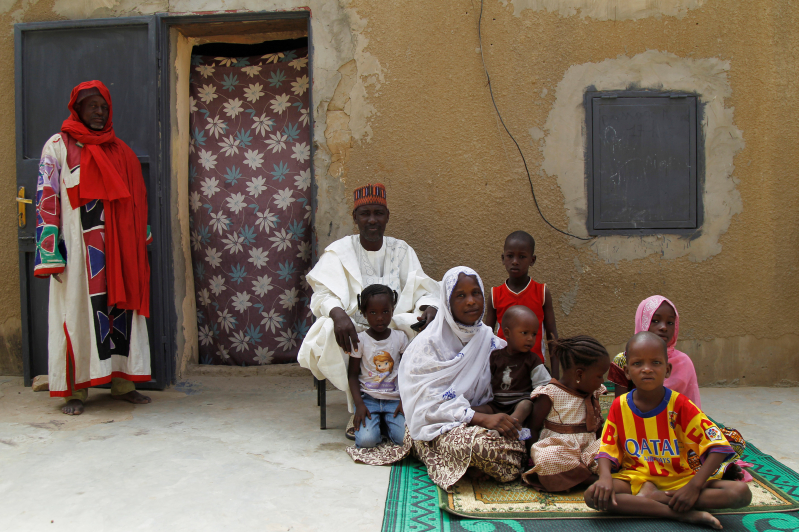
Just under a quarter of a million children in Nigeria's northeastern state of Borno, where an insurgency waged by jihadists Boko Haram has disrupted trade andhealthcare, suffer from life-threatening malnourishment, UNICEF said on Tuesday.
The U.N. children's agency said the extent of the nutrition problems faced by children in Borno had become clearer as a result of more areas in the northeast becoming accessible to humanitarian assistance.
By 2014, Boko Haram controlled territory around the size of Belgium in northeast Nigeria until most of it was recaptured last year by the Nigerian army and troops from neighboring countries.
UNICEF said that out of the 244,000 children suffering from severe acute malnutrition in Borno this year, around one in five will die if they do not receive treatment.
The agency said there had been a large rise in the number of children suffering from this condition in Borno state, from 35,000 in 2013 and 57,500 in 2014.
"Some 134 children on average will die every day from causes linked to acute malnutrition if the response is not scaled up quickly," said Manuel Fontaine, UNICEF's regional director for western and central Africa, who recently returned from Borno.
Fontaine said people in Borno had lost their livelihoods and been cut off from trade networks and healthcare, with many unable to access clean water, factors he said had exacerbated thehealth problems faced by children.
He added that UNICEF cannot reach around two million people in the northeast due to insecurity and poor infrastructure.
More than 15,000 people have been killed and at least 2 million displaced by Boko Haram's insurgency in Nigeria. The group still stages suicide bombings in northeast Nigeria and neighboring Cameroon, Niger and Chad.
The agency estimates that around 2.5 million children suffer from severe acute malnutrition in Nigeria, Africa's most populous nation with around 180 million inhabitants, and is supporting treatment for the condition in 12 of its 36 states.
Fontaine, speaking on Tuesday in a news briefing, said UNICEF was reviewing its budget for Borno which was likely to increase to about $200 million, although he did not discuss the amount of money currently allocated.
Last month, medical charity Medecins Sans Frontieres said more than 1,200 people had died from starvation and illness at an northeastern aid camp that houses people fleeing Boko Haram.







